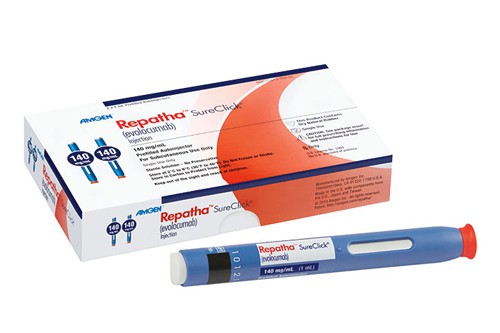
Amgen’s cholesterol-lowering treatment Repatha (evolocumab) has been approved by the FDA and will be launched in the US next week.
This will allow it to compete in that market with Sanofi and Regeneron’s rival PCSK9 inhibitor Praluent (alirocumab), which received US approval a month ago.
Repatha was approved as an addition to diet and maximally-tolerated statin therapy in adults with heterozygous familial hypercholesterolemia (HeFH), homozygous familial hypercholesterolemia (HoFH), or clinical atherosclerotic cardiovascular disease (ASCVD), such as heart attacks or strokes, who require additional lowering of low-density lipoprotein (LDL) cholesterol.
Sean Harper, executive vice president of research and development at Amgen, said: “We are excited about today’s approval of Repatha in the US as patients and physicians will now have a new treatment option to lower LDL cholesterol.
“Data from key clinical studies have shown that Repatha significantly reduces LDL cholesterol in patients who have not been able to lower their LDL cholesterol through diet and statins alone.”
In phase III trials the addition of Repatha to background lipid-lowering therapy, including statins, resulted in intensive reductions in LDL-C levels with favorable effects on other lipid parameters. In patients with clinical ASCVD or HeFH, Repatha reduced LDL-C by around 54-77% compared with placebo.
A human monoclonal antibody, Repatha inhibits proprotein convertase subtilisin/kexin type 9 (PCSK9) protein that reduces the liver’s ability to remove LDL cholesterol, or ‘bad’ cholesterol, from the blood.
There are approximately 11 million people in the US with ASCVD and/or familial hypercholesterolemia (FH), who have uncontrolled levels of LDL-C and a further one million people are thought to have FH but be undiagnosed.
Repatha’s US approval follows its European marketing authorisation in July, when it became the first PCSK9 inhibitor to be approved anywhere in the world.




